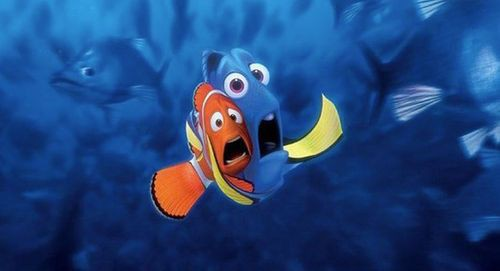Why it’s fish fraud, of course!
Ethics Alarms covered the problem way back in 2011, in a post called “Getting Scrod in Boston: The Ravages of Seafood Fraud. I just checked: almost nobody has read it, and those who have almost certainly have 1) forgotten about it and 2) been ripped off buying seafood since.
Now the guys at “Stuff You Should Know” have done an excellent podcast about the issue. It really is infuriating that with all the regulations we pay for, and all the attention the government focuses on fads, politically correct crusades (how many Americans are affected by limitations on which public rest rooms can be openly used by transgender citizens?) , and out-and-out trivia, something like this goes not only unaddressed by officials, but ignored as well. The news media, meanwhile, would rather use its limited daily space to tell us how Stephen Colbert just skewered Donald Trump last night than to warn us about our pockets being picked.
Well, not me: I almost never buy seafood unless it’s raw oysters, whole shrimp or crab, and if I’m in New England, Ipswich clams and lobster, all hard to fake.
The site also provides good links on the topic, though not mine:
Bait and Switch: The Fraud Crisis in the Seafood Industry
Fishing and Processing on a Freezing Trawler documentary
USF Scientists Unveil Device to Unmask Fake ‘Grouper’
Oceana Study Reveals Seafood Fraud Nationwide
_______________________
Pointer: Althouse

I’ve got to admit, this is something of which I was totally unaware. In part, because I rarely buy seafood other than shrimp and/or lobster. Both are hard to fake and lobster is rarely affordable. We will, occasionally, buy Tilapia at the grocery store.
Tilapia, that taste like chicken…?
Nope, just tastes like…well, fish.
White fish like Tilapia is probably the most faked of all.
Depressing.
That’s awful! I had heard of occasional cases, but I had no idea it was that widespread, and in Boston!
Things like this really make me wish we had a stronger FDA. In most cases, the laws are already on the books, but the FDA is just too strapped from years of cuts to enforce them. Just about all of our regulatory agencies are suffering from the same problem: not enough money or staff to actually enforce any of the laws. And it infuriates me that everybody seems to be ignoring these problems when they’re so easy to fix – there’s no new legislation that has to be passed, no court battles to fight; we just need to let our enforcement agencies do their jobs. The money it would take to fully fund the FDA is minuscule compared to our entitlement and military programs.
I hope my fish sticks are legit.
I hate to tell you this, but they just threw every fish in the sea into a woodchipper.
In the older post you mentioned escolar . I’ve been subject to its effects twice, the first time I assumed it was a bad piece of fish but the second time it happened , and at a different sushi place , I figured out the culprit. In most people the small serving size of sushi doesn’t cause any problems but no me.
If I buy fish I buy it whole and, sometimes even alive, at one of the many Asian markets in the area. That’s the only way to insure that you are getting what you pay for.
It may also be sold whole to insure that no one pisses off a large crowd of Asian women thus resulting in the death of the fish monger.
Yes, I saw escolar in the earlier post.
It raised a question for me.
I remember eating Super White Tuna at several sushi places. (Never had any digestive issues, and I really like the taste.) I have known for some time that it is not actually a form of “Tuna” and may have even been told that by a server.
Am I still being defrauded if I know what I am getting?
For what it is worth, I visited a restaurant the other day and they had escolar on the menu. I thought, “wait, is that Super White Tuna? I wish they would just call it Super White Tuna so I know what I am getting.”
And, there is another one out there that I have heard about. I don’t know if it is Red Snapper, Asian Sea Bass, or Tilapia that underwent a marketing change because its original name was “Stinky Yucky Ugly Fishy,” or something similarly unappealing.
-Jut
Living in South Florida, we see more of it then a lot of places (as Florida is one of the leading states in terms of eating seafood, naturally). They’ve done more for it recently, and it was good to read in the paper like a year or so ago about how they really cut down on grouper fakes in our area at least. Fortunately I really like mahi, which is local and pretty much never been found to be labeled wrong.